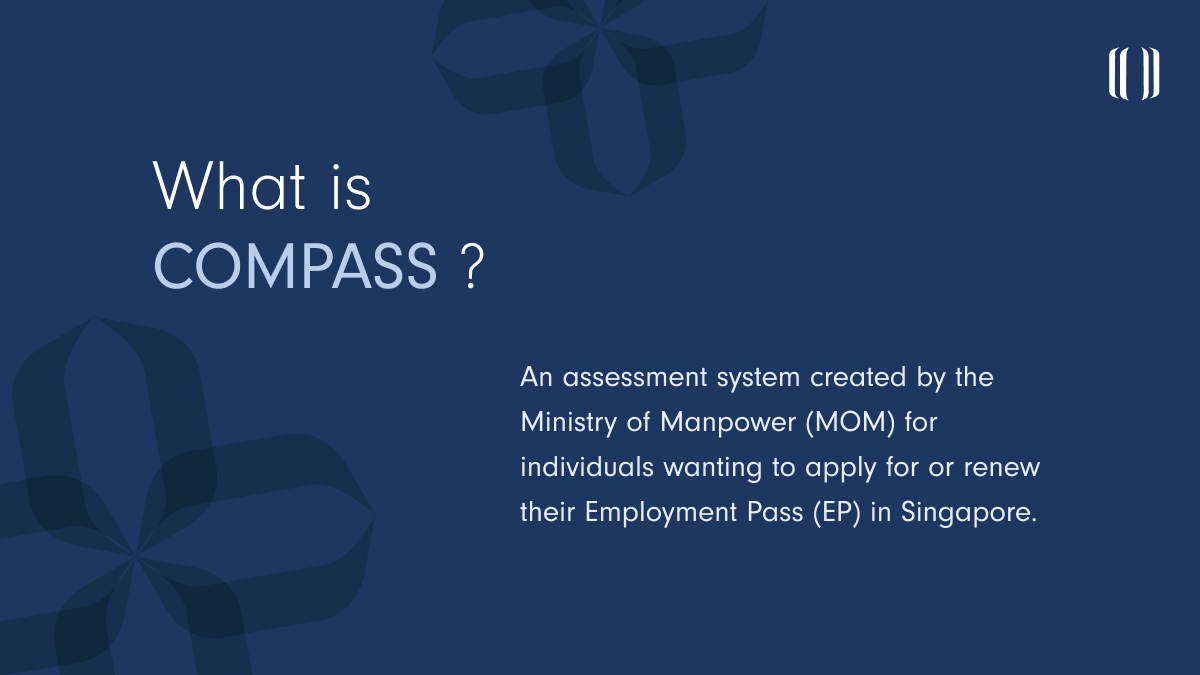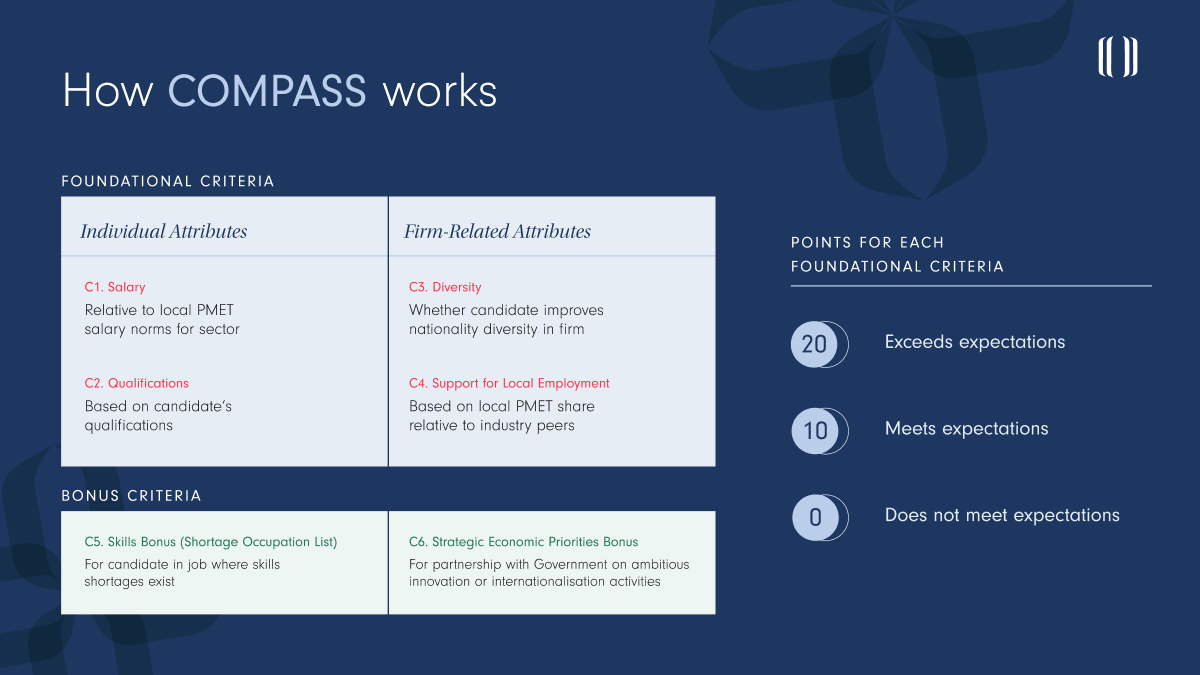Starting September 2023, Singapore work pass applicants would now need to hit a minimum threshold to qualify under a new point system created by the Ministry of Manpower called the Complementarity Assessment Framework (COMPASS). Would this new point system make things easier or harder for employers and employees?
What is COMPASS?
As mentioned, COMPASS is an assessment system created by the Ministry of Manpower (MOM) for individuals wanting to apply for or renew their Employment Pass (EP) in Singapore. According to the Ministry, this new point system allows employers to “select high-quality foreign professionals, while improving workforce diversity and building a strong Singaporean core.”

How does COMPASS work?
COMPASS evaluates all Employment Pass applications based on individual and firm-related attributes. Applicants earn points by meeting or exceeding expectations on the criteria listed. They can also get additional points if they bring in skills that are in shortage in Singapore, and if they support strategic economic priorities by the Singaporean government.
40 Points are required to pass the COMPASS evaluation.
Singapore EP applications are scored on four foundational criteria: Salary, Qualifications, Diversity, and Support for Local Employment.
1. Salary
All Singapore EP applicants must meet the minimum salary requirement. This range may change depending on the applicant’s age and the sector-specific benchmark for local professionals, managers, executives, and technicians (PMET) salaries.
Here’s how COMPASS would award points under these criteria:
-
- ≥ 90th percentile -20 points
- 65th to 90th percentile – 10 points
- < 65th percentile -0 points
2. Qualifications
An applicant’s educational attainment is another aspect COMPASS would consider during the application process and may give you the boost you need. But remember that this is not a mandatory criterion, as applicants may still pass by getting enough points in other areas.
Here is the breakdown of how they award points:
-
- Top-tier institutions-20 points
- Degree-equivalent qualifications-10 points
- No degree-equivalent-0 points
For the applicant’s qualifications to fit in the top tier institution bracket, they must come from:
-
- Top 100 universities based on international rankings, and other highly-reputed universities across different regions
- Singapore’s Autonomous Universities
- Vocational institutions that are highly recognised in a particular field.
For degree-equivalent qualifications, it must have these characteristics:
-
- Foreign qualifications that are assessed to be comparable to a bachelor’s degree in the UK system.
- Professional qualifications that are well-recognised by the industry and endorsed by a relevant sector agency.
3. Diversity
Diversity is an essential component of a firm’s commitment to inclusion and is integral to developing new ideas and networks. It enhances creativity and innovation and creates a culture of collaboration that moves towards a more inclusive and resilient workforce in the country.
The system awards more points to applicants whose nationality forms a small share of their company’s PMET employees. If the applicant’s company only employs fewer than 25 PMET employees, the applicant automatically scores 10 points.
Here is how they score applications based on the share of the applicant’s nationality among the company’s currently employed individuals:
-
- < 5%-20 points
- 5 to 25%-10 points
- ≥ 25%-0 points
4. Support for local employment
Applicants can earn more points when their company has a relatively higher share of local PMET employees than other companies in the same sector. This one is here to follow the Ministry’s mandate to “build a strong Singaporean core.”
If the company’s local PMET share is at least 70% (pegged to the 20th percentile of firms economy-wide), the applicant would still earn at least 10 points to not penalise companies for having a high percentage of local employees.

Exemptions from COMPASS
According to the Ministry of Manpower, there are conditions where an applicant may be exempted from COMPASS, but only if they fulfil any of these following conditions:
-
- Earning at least $22,500 fixed monthly salary (similar to the Fair Consideration Framework job advertising exemption from 1 September 2023).
- Applying as an overseas intra-corporate transferee under the World Trade Organisation’s General Agreement on Trade in Services or an applicable Free Trade Agreement that Singapore is a party to.
- The applicant is filling a short-term role (around one month or less).
Although COMPASS may seem like an additional burden to employers and employees, this point system is an excellent addition as it adds more transparency to the work pass application process.
In the Minister of Manpower Dr. Tan See Leng’s speech at the Committee of Supply, he had shared that once COMPASS is in place, employers can use a pre-assessment tool, just like the self-assessment tool for EP or S pass eligibility. This tool allows applicants to generate a “balanced scorecard” showing how their application would hold up before submission to work with their employers on improving their chances of getting into the country.
Getting professional immigration services can get your application the boost it needs, so foreign employees can finally secure their Singapore EPs. They not only simplify the entire process, but can also help expedite applications. We at Lanturn have a great team of immigration experts that can help secure the proper work passes for our clients. Reach out to us today if you would like to learn more.

